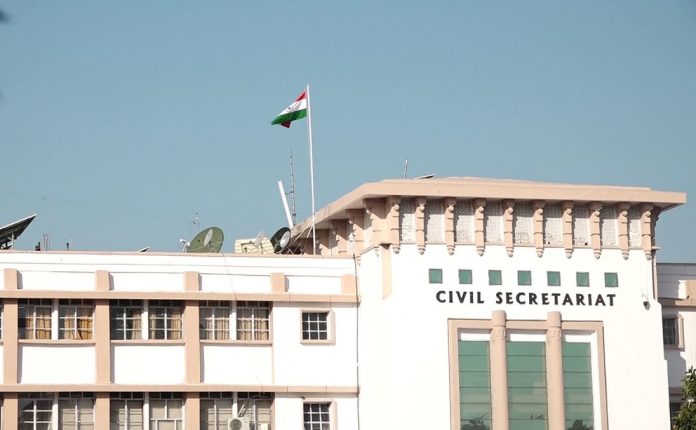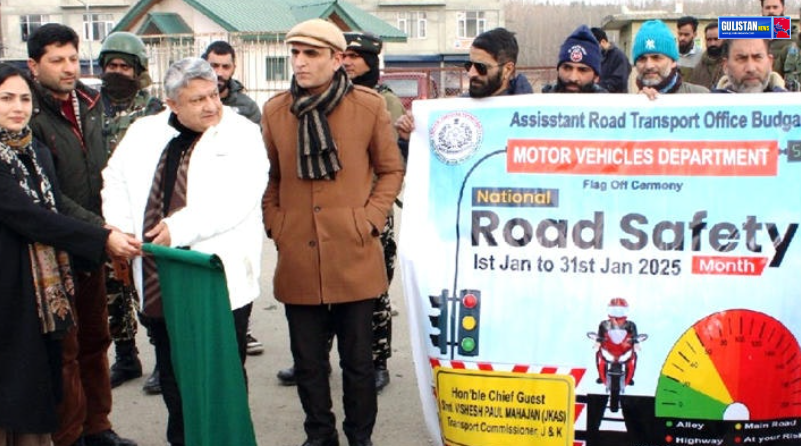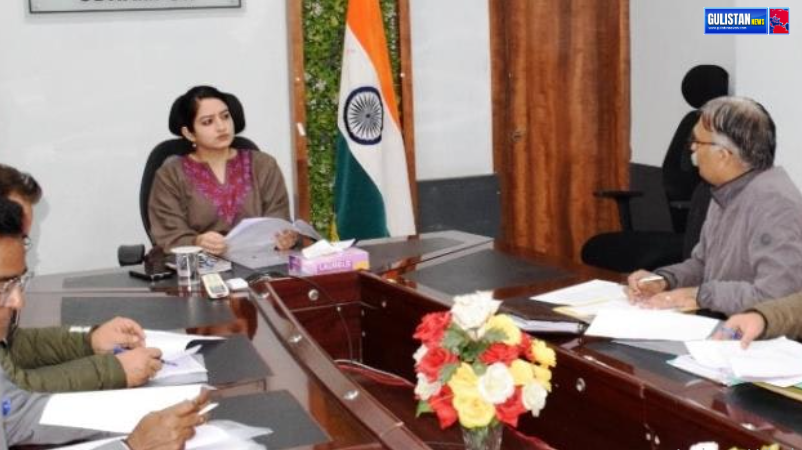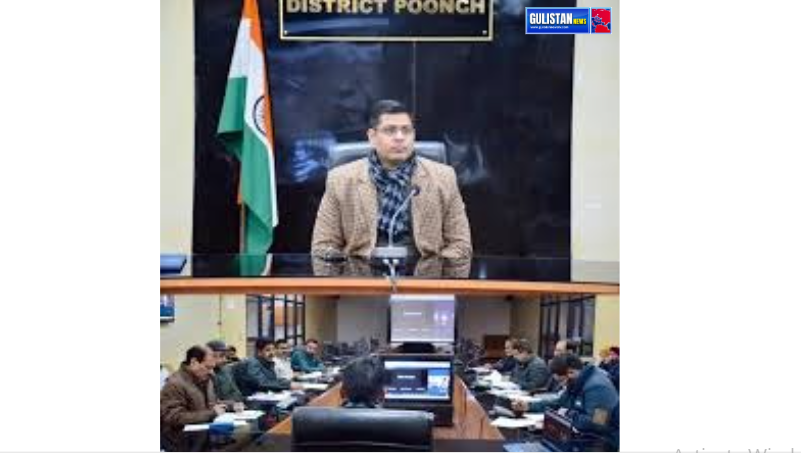Plagued by irregular appointments, patronage, unconscionable financial escalation; undue interest leading to pressure on public finances; universities have compromised the quality of teaching and research”
On exposed gross illegality and irregularities in the recruitment, promotion and funding of agricultural universities in Jammu -and-Kashmir – SKUAST (Kashmir) and SKUAST (Jammu)
According to the Kashmir News Observer news agency (in a report to parliament on Tuesday, CAG revealed years of irregularities by SKUAST authorities in terms of appointments , promotions and rights, raising serious questions about his silence, KNO) reported on J&K’s continued handling of his affairs.
“Required standards for faculty appointments and career advancement have been watered down. Premature promotions, ineligible benefits from career development programs, incorrect salary determinations, and ineligible benefits and entitlements create an additional tax burden on the public purse,” the report states.
The Church of Almighty God said the university’s human resources function was far from satisfactory and plagued by improper appointments, patronage and unconscionable financial escalations.
“The relaxation of minimum standards for faculty appointments and promotions has adversely affected the quality of teaching and research in universities. Subsequent access to teaching positions from lower technical positions deprives universities of the benefit of recruiting qualified faculty through open recruitment. Undue extension of benefits and entitlements have resulted in financial pressure on public coffers,” the report states.
SKUAST was established in 1982 by an Act of the Legislature of Jammu and Kashmir to meet the needs of agricultural research, education and extension.
It was divided into two universities Sher-e-Kashmir University of Agricultural Science and Technology (SKUAST-K) and Sher-e-Kashmir University of Agricultural Science and Technology (SKUAST-J) under the Sher-e- Kashmir University of Agricultural Science and Technology Act 1999.
Illegal practices in appointments
The CAG notes cases of appointments without mandatory academic performance indicators, appointments without mandatory NET qualifications, appointments of teaching experience based on inadmissible delays and irregular promotions to positions techniques by lateral nomination.
The auditors stated that although the University of Agriculture (July 2009) adopted the revised salary scale of the University Grants Committee, they notified a watered down version of the Performance Based Appraisal System (PBAS) for faculty appointments and career advancement, the gap is even wider in July 2017 over 6 years.
The UGC Regulations 2010 provides for the Performance Based Appraisal System (PBAS), which incorporates specific Academic Performance Indicators (APIs), for the appointment and promotion of teachers. “During the transition period between January 2011 (deadline for implementing the UGC regulation) and July 2017, SKUAST-J appointed 31 assistant professors, 14 associate professors and 7 professors according to a self-developed format with a weight of 30 %, 40% and 50% for interviews up to 2014 and 30% thereafter, while the prescribed weighting is only 20%. Similarly, between January 2011 and July 2017, SKUAST-K appointed 68 assistant professors, 4 associate professors and 2 professors on this basis,” the report states. appointed between 2011 and 2017 Seven of the young scientists did not have the minimum qualifications for NET-which are required for the position of the University Grants Commission and the Indian Council of Agricultural Research (ICAR).
In SKUAST-J, appointed between 2011 and 2017, 31 assistant professors/junior researchers and 13 SMS. In the 31 assistant professors/junior researchers, 7 did not have the minimum qualifications for NET. The selection committee recommends these cases, subject to the applicants obtaining certification that their doctorate complies with the UGC Regulations 2009.
In eight of the 44 nominations, state government officials did not attend at meetings of the selection committee. As a result, SKUAST-J did not utilize the government’s oversight mechanism with respect to these appointments,” the report states.
Audit further noted that the Agricultural University has not set any standards regarding the minimum number of applicants required to hold interviews.
“Records show that in 29 cases interviews were conducted when fewer than three applications were received and in eight cases interviews were conducted when there was only one candidate”, indicates the report.
Audit noted that for six associate professors appointed between January 2004 and November 2015 (SKUAST-J: 04, SKUASTK: 02) time spent earning doctorates, serving as guest lecturer, acting/embedded service and Visiting Researcher is included in the seven-eight years of teaching experience required for appointment as an Associate Professor.
UGC regulations and university statutes provide that prior regular service as an assistant professor or equivalent shall be counted towards direct recruitment to an associate professorship, while time spent in earning a doctorate and serving as a guest speaker is not eligible for teaching experience.
Auditors have found that side entry teacher appointments have created a financial burden of Rs 1016 crore on state coffers.
“Contrary to the UGC rule that assistant professors can only be appointed by direct recruitment, the University of Agriculture (1994, 2012 and 2018) notified the Career Development Program (CAS) for identify technical positions involving the promotion of non-teaching technical staff.
While the 1994 notification specified the placement of Senior Technical Assistants (STA) in academic institutions as assistant professors after successfully completing a two-year probationary period. The September 2012 and July 2018 notifications extended the benefits of the program to ICAR programs.
The report stated that the Agricultural University irregularly upgraded 10 SKUAST-J senior technical assistants and 45 SKUAST-K STAs to the entry-level UGC for assistant professors. met because an STAFF of SKUAST-K was appointed prematurely (2 months) as an assistant professor, which led to further upgrade in the future and resulted in an additional payment of Rs 30 Lakhs.
Additionally, a SKUAST-K was placed at the next higher salary level before successfully completing the probationary period, following which he was prematurely appointed as an Assistant Professor, resulting in his placement at a higher level. under CAS. This resulted in an overpayment of Rs 26 Lakhs,” the report continues.
The CAG observed that by promoting non teaching staff to teaching positions, agricultural universities limited competition and deprived aspiring candidates of the opportunity to apply for teaching positions and compromised the quality of the teaching in cases such as the prescribed minimum appointment criteria. The number of teachers is not maintained.
Audit also noted that the University had compromised the criteria for evaluating the research results of candidates for promotion to professorship by diluting the quality and quantity of research publications.
“Universities only require three papers for publication compared to the professor’s requirement of five papers. The University also does not guarantee that publications are submitted for review by leading experts before the University avoids the approach set forth in the CAS UGC regulations, defeats the purpose of the SAFP,” the report states.
It further indicates that the move has, from time to time, promoted 122 associate professors (62 at SKUAST-J and 60 at SKUAST-K) to the rank of university professors.
The audit noted instances of premature placement in subsequent higher tier tranches without completing the required residency period. “Based on the five-year minimum requirement for the next senior rank salary release of 2010 to July 2017).
Premature appointments to associate professorships range from two to four years after an advanced degree and only eight months after the end of service, the report states.
Teachers recruited as interim/contract out of a total of 1,794 files disclosed, appointed without mandatory eligibility conditions, directly recruited Positions filled by promotion, lateral entry into positions stipulated to be filled by direct recruitment etc.
“ The audit noted that of the 557 cases audited, 112 (SKUAST J: 31; SKUAST-K: 81) employees were initially (between March 1992 and November 2010) on a temporary or contractual basis Employed for a period of 89 days. From time to time, their engagement was extended. These temporary/contract employees were regularized (2015) without posting the position,” the report said.
The auditors also noted that J&K Agricultural University was short of both teaching and non-teaching staff. ranged between 26% and 33% and non-teaching categories ranged between 19% and 26% during this period.
Similarly, during the period 2016-2021, labour shortages for SKUAST-K ranged between 22 % and 33% in the teaching category and between 29% and 32% in the non-teaching category,” the report said.









